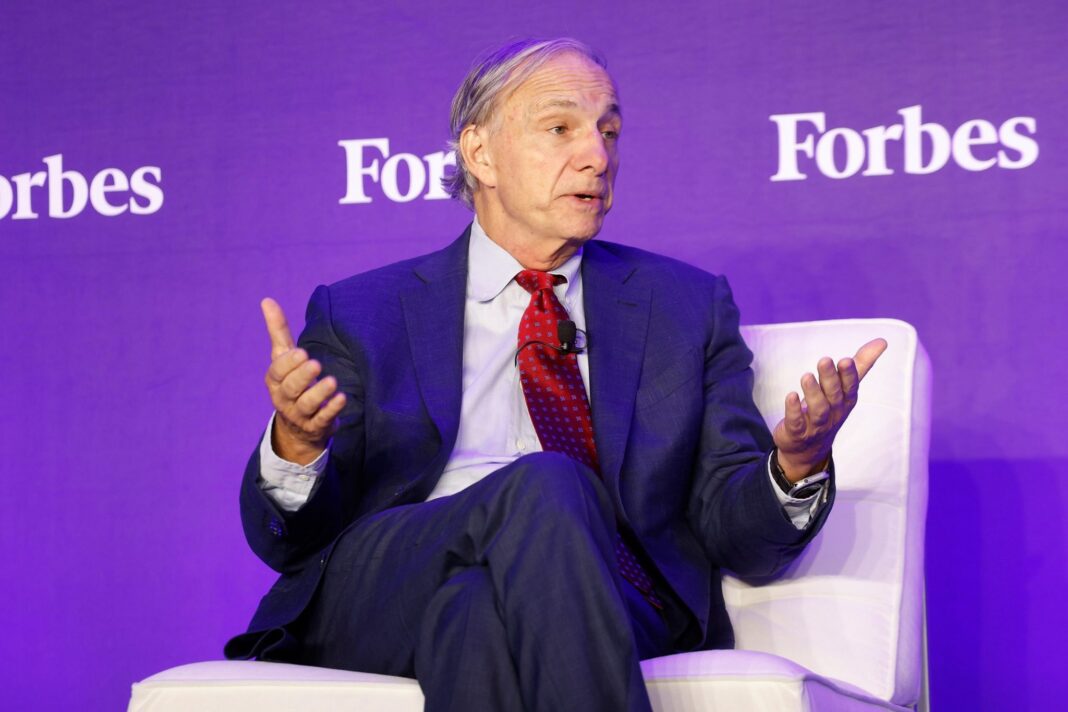Dalio—who founded Bridgewater Associates in the 1970s and built it into the world’s biggest hedge fund—said at the Milken Institute’s Asia Summit on Thursday that the world was on the cusp of various “great disruptions.”
He named five “issues of our time” that, he argued, were set to interact and transform the way the world works: unprecedented debt creation, internal political conflict in countries like the U.S., the changing world order, climate change and technological breakthroughs.
When it came to the latter of those “forces,” AI was going to be a major transformative power, according to Dalio, who described the technology as “like nuclear, just more powerful.”
“In terms of productivity, it could be mind-blowing,” he predicted. “There are going to be robots with AI – you’re making people, almost. If it’s managed well, I think that the workweek could lessen. Maybe … the workweek goes to a three-day workweek or so.”
However, he warned that unless interventions were made, only a proportion of society would see the benefits of those changes.
“The issue is going to be an argument about what to do and how to do it,” he said, noting that as AI disrupts the jobs market some workers will find themselves with little or no usefulness in the new economy while others will still be “diligently at it.”
“There’ll be these big, huge wealth implications [of that],” he said.
Since the phenomenal rise of OpenAI’s generative AI chatbot ChatGPT, billions of dollars have been poured into the development of artificial intelligence. However, the AI boom has prompted warnings that millions of workers could be displaced by machines, potentially boosting corporate earnings but widening the wealth gap.
Mindful policymakers needed
Policymakers and other stakeholders involved in the implementation of AI needed to be mindful that the technology’s potential benefits don’t exacerbate inequality, Dalio argued during the Milken Institute event last week.
“With the productivity [benefits] there have to be decisions made around how that will be shared,” he said.
Dalio said reforms were needed to ensure wealth inequality was not exacerbated by all of the looming societal disruptions. However, he did not appear confident that this could be achieved in the current political climate.
“There’s only one prospect for this: there must be a strong middle, and ideally a leader of a strong middle,” he argued. “There should be a president that has a bipartisan cabinet. And then there needs to be great reform, reform of the system that would make it productive for most people.”
He added that there should be “an equivalent of a bipartisan Manhattan Project”—the secretive World War II era project that saw the development of the world’s first atom bomb—to come up with a reformation plan.
“Because it’s bipartisan then they may be able to get it through,” he said. “Right now all of that’s unlikely, because [America’s] bipartisanship really is segments of the population fighting for them[selves] and it’s a win at all cost. And there will be no winner, really, because one side cannot beat the other side.”
How can investors prepare?
Asked about how investors could prepare for a change in the world order, including the impact of AI, Dalio said it was important to look beyond the companies directly influencing the shift.
“With the new technologies it’s like going through a time warp. We’re going to be in a different world, and the disruptors will be disrupted,” he said. “I don’t need to pick those who are creating the new technologies. I need to really pick those who are using the new technologies in the best possible way.”
He added that because of uncertainty around the supply and demand of debt, he didn’t want “to own debt, bonds and those kinds of things.”
“Temporarily right now,” cash is a good place to be, Dalio argued, but he noted: “I don’t think it’ll be sustained because of the issues we’re talking about.”
The hedge funder, who has an estimated net worth of $16.5 billion, stepped down as Bridgewater co-CEO in 2017, and fully ceded control of the company last year.
Bridgewater, which Dalio famously set up from his New York City apartment, manages assets worth more than $120 billion.
Subscribe to Well Adjusted, our newsletter full of simple strategies to work smarter and live better, from the Fortune Well team. Sign up today.





